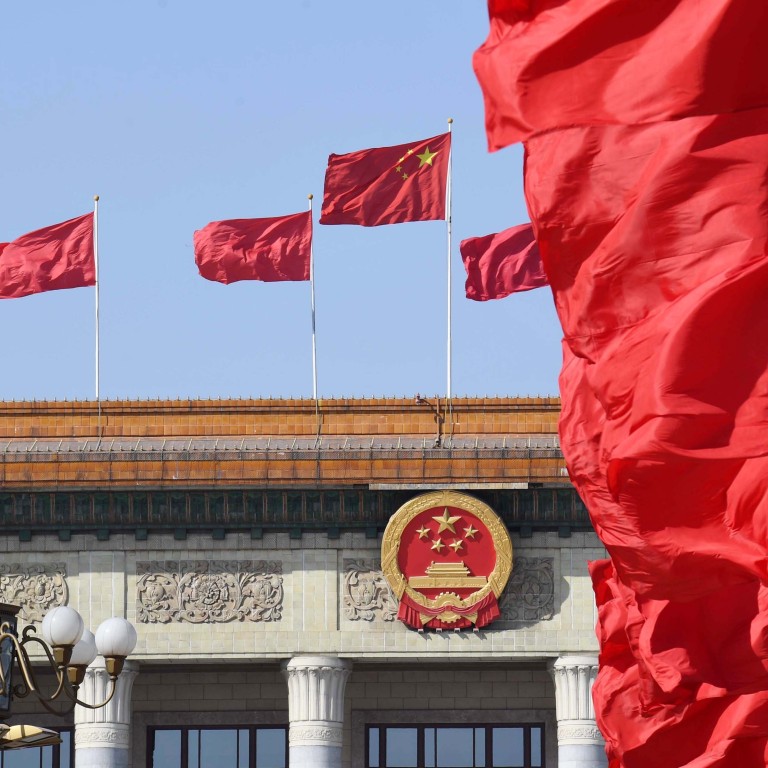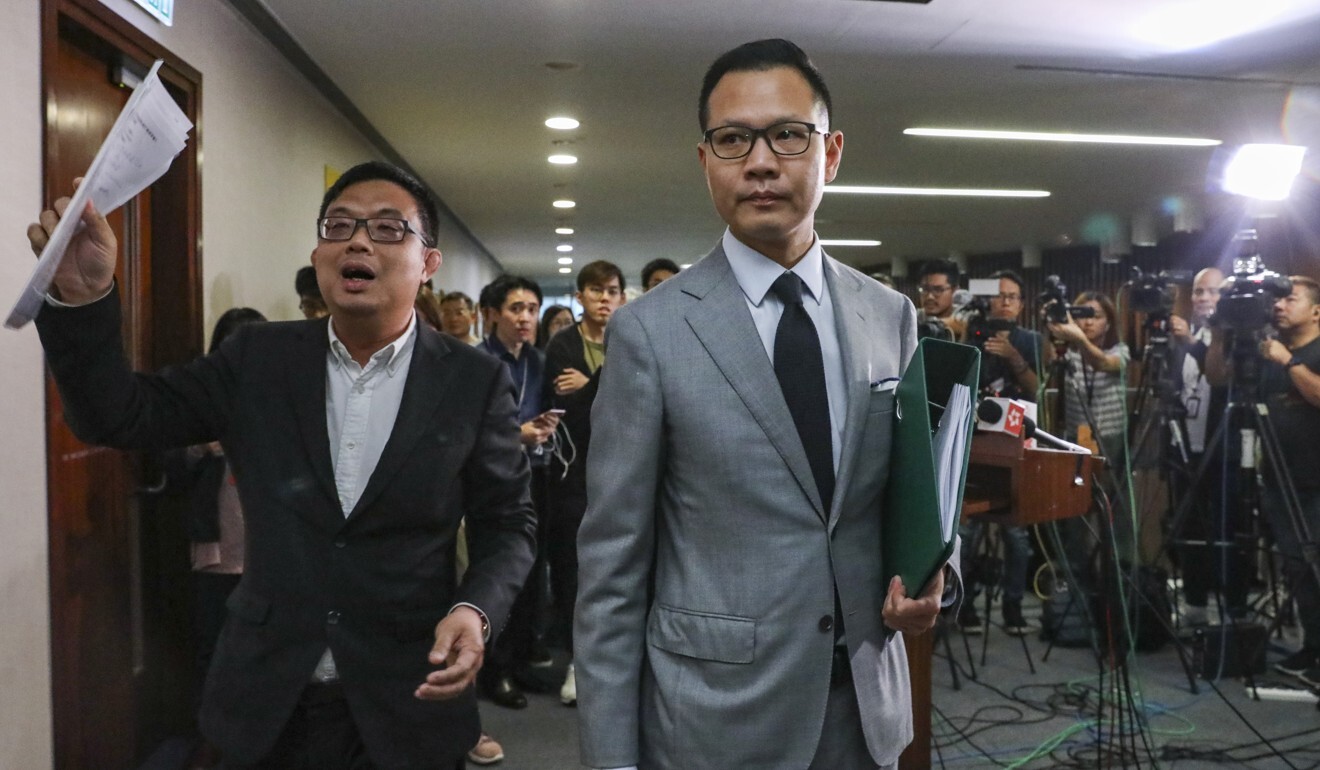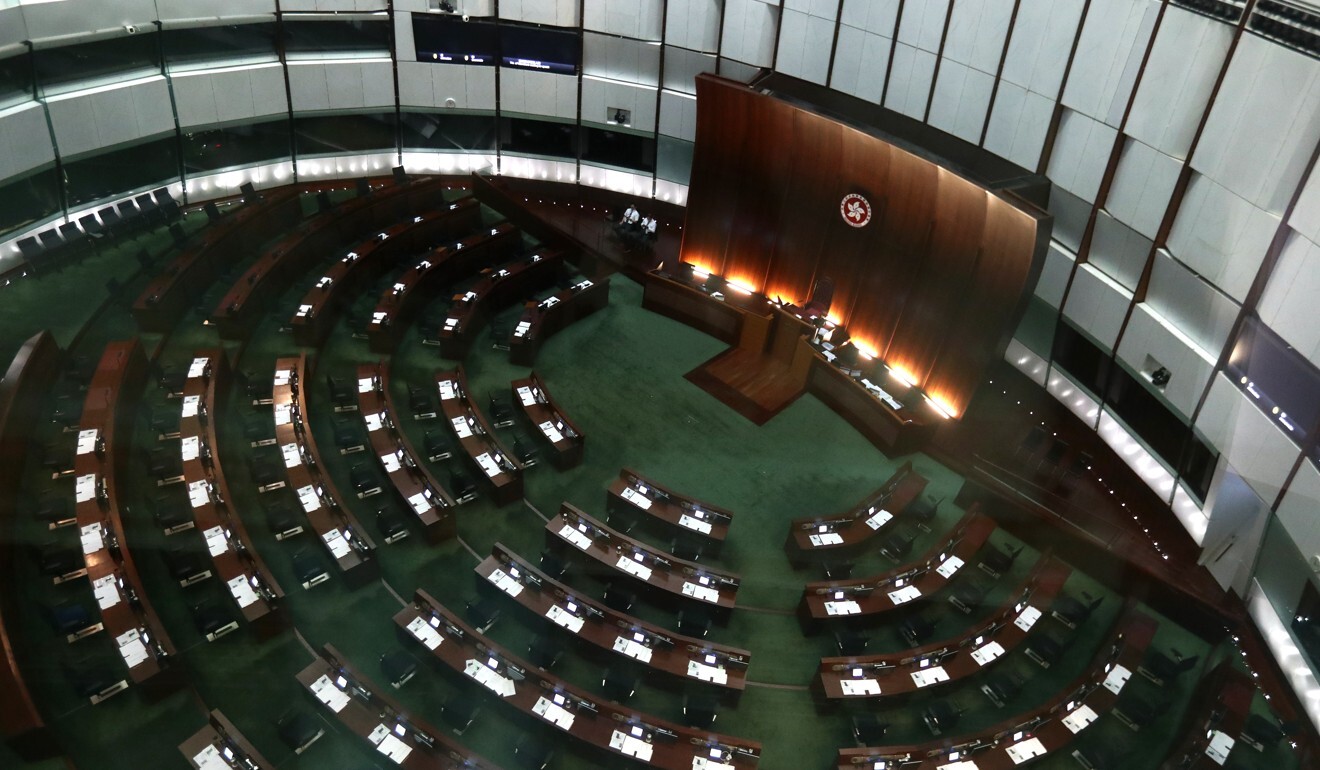
Hong Kong and Macau Affairs Office and Liaison Office slam Hong Kong’s opposition lawmakers for not taking their oath seriously
- Beijing agencies slam opposition lawmakers’ filibustering tactics as ‘dirty tricks’
- Liaison office says 14 bills and more than 80 subsidiary pieces of legislation held up as wait drags on
Beijing has escalated its war of words with Hong Kong’s opposition lawmakers, accusing them of blocking and disrupting legislative proceedings with an “if we burn, you burn with us” mentality reflected in a popular slogan of last year’s anti-government protest movement.
In a strongly worded statement, the cabinet-level Hong Kong and Macau Affairs Office (HKMAO) blamed filibustering by pan-democrat lawmakers for the Legislative Council House Committee’s failure to elect a chairman since last October, condemning them for delaying work involving economic and livelihood issues.
“Some opposition lawmakers who damage the public interest for the sake of political self-interest have adopted dirty tricks to paralyse the operation of the legislative body,” the office said on Monday.
“One can’t help thinking their behaviour amounts to a breach of the [Legislative Council] oath, and constitutes an offence of misconduct in public office.”
I’d like to remind the [central government] agencies that under the one country, two systems policy, no mainland units can interfere with Hong Kong’s internal affairs
The delay in naming a chairman, abetted by lengthy speeches from opposition lawmakers, has seen scores of pieces of legislation trapped in committee and unable to make their way to the Legco floor for a vote.
Legal sector lawmaker Dennis Kwok Wing-hang of the opposition Civic Party was among those singled out in Monday’s statement for allegedly abusing his power by allowing the delays.
He was also named in a statement issued later the same day by Beijing’s representative in Hong Kong, the central government liaison office, which accused him and “other Legislative Council members” of preventing the legislature from fulfilling its constitutional duties.
Expressing “strong condemnation”, the liaison office said the filibustering was “malicious” and a breach of the lawmakers’ oath to “uphold the Basic Law, bear allegiance to the Hong Kong SAR, and serve the Hong Kong SAR conscientiously, dutifully”.

Kwok, who for procedural reasons has presided over the committee’s meetings since the beginning of the legislative year in October, has repeatedly been accused by the pro-establishment camp of allowing opposition lawmakers to speak at length with the express purpose of delaying a chairman vote.
In its statement, the liaison office counted 14 bills and more than 80 subsidiary pieces of legislation it said had been held up because of the house committee’s lack of a leader.
Kwok on Monday rejected the two Beijing agencies’ criticisms as “unfounded and political invective”, saying they had no role to play in the city’s domestic affairs and may have been in breach of the “one country, two systems” principle by interjecting themselves.
We are not talking about filibustering in one or two meetings. For six months, the selection of a chairman has not taken place because of filibustering
“I only follow the rules when presiding over the meetings, and I have no right to strip other members’ right to speak,” he said. “I’d like to remind the [central government] agencies that under the one country, two systems policy, no mainland units can interfere with Hong Kong’s internal affairs.”
Twenty-one opposition lawmakers came to Kwok’s defence late on Monday, backing up his argument in a joint statement that said Legco’s operations did not fall under the areas of “national defence” or “diplomacy” which are identified as the central government’s responsibility under the city’s Basic Law.
Tam Yiu-chung, meanwhile, a Hong Kong member of the National People’s Congress standing committee, said the two statements signalled growing impatience on Beijing’s part.
“We are not talking about filibustering in one or two meetings. For six months, the selection of a chairman has not taken place because of filibustering.”

Professor Lau Siu-kai, a vice-chairman of the Beijing-aligned think tank, the Chinese Association of Hong Kong and Macau Studies, also said the central government was becoming less patient and wanted the pro-establishment camp to take stronger action.
“The opposition’s filibustering in the House Committee is viewed by Beijing as the pan-democrats’ colluding with foreign forces to resist Beijing. They want all to burn with them too if they burn,” Professor Lau said, echoing the language of the HKMAO statement.
“Beijing wants … the pro-establishment camp to do more to rectify the situation, as they still maintain a majority in the legislature,” he added.
Separately on Monday, the two central government agencies also each issued their own responses to last week’s appeal court ruling on the city’s controversial mask ban.
In its statement, the HKMAO said the appeal court had “rectified” the High Court’s November ruling while also taking issue with foreign media for criticising the Thursday decision.
The central government liaison office statement, meanwhile, said similar mask bans had been adopted in many overseas countries and it was not unreasonable for Hong Kong to adopt such “special arrangements” to maintain public order and safety.
Partially overturning the High Court ruling, the Court of Appeal ruled that the government had the right to ban the wearing of masks at unlawful assemblies but not at authorised public gatherings.
In October, at the height of anti-government protests, Hong Kong leader Carrie Lam Cheng Yuet-ngor invoked colonial-era emergency powers to enact the ban. At the time, many protesters wore masks to hide their identities from police.
The contentious ban was later ruled unconstitutional shortly thereafter, a decision that riled Beijing and led to the Hong Kong government’s appeal.

